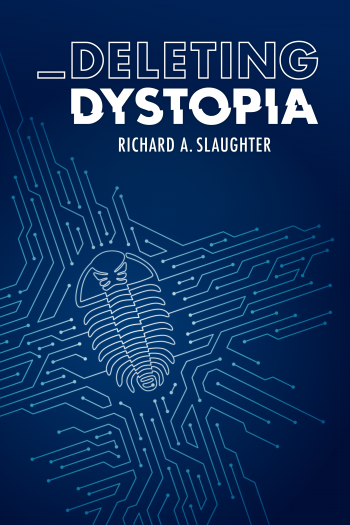Book Title: Deleting Dystopia: Re-Asserting Human Priorities in the Age of Surveillance Capitalism
Edited by Sophia Imran and Luke van der Laan

Download this book
Book Description: Deleting Dystopia confirms that the existential threats posed by the misuse of advanced digital technologies are real. But, in place of apathy and fatalism, Slaughter explores ways of understanding the threat, conceptualising solutions and identifying strategies that lead away from digital authoritarian futures towards those funded on humanly viable values and practices.
Contents
Book Information
Book Description
The IT revolution has brought many surprises. Among them is the fact that intensive surveillance and the related abuse of personal data have fallen into the hands of powerful digital oligarchies. Accounts of the increasingly repressive uses of advanced technologies and the subsequent ‘dumbing down’ of entire populations cast dark shadows over future prospects that are beginning to look increasingly dystopian.
Deleting Dystopia confirms that the existential threats posed by the misuse of advanced digital technologies are real. But, in place of apathy and fatalism, Slaughter explores ways of understanding the threat, conceptualising solutions and identifying strategies that lead away from digital authoritarian futures towards those funded on humanly viable values and practices.
Licence
Deleting Dystopia: Re-Asserting Human Priorities in the Age of Surveillance Capitalism Copyright © 2021 by University of Southern Queensland is licensed under a Creative Commons Attribution-NonCommercial-ShareAlike 4.0 International License, except where otherwise noted.
Subject
Educational: Humanities and social sciences, general

